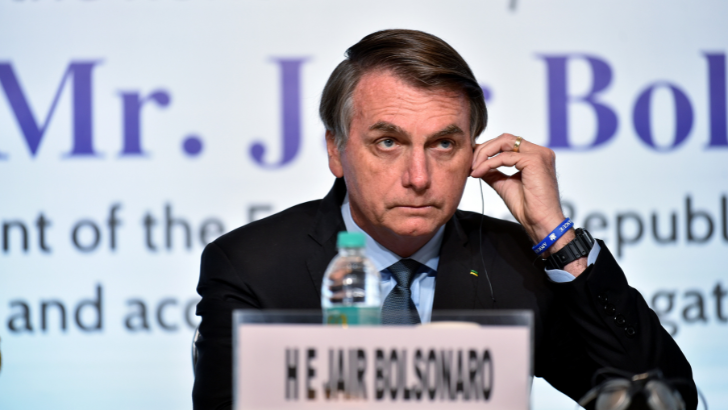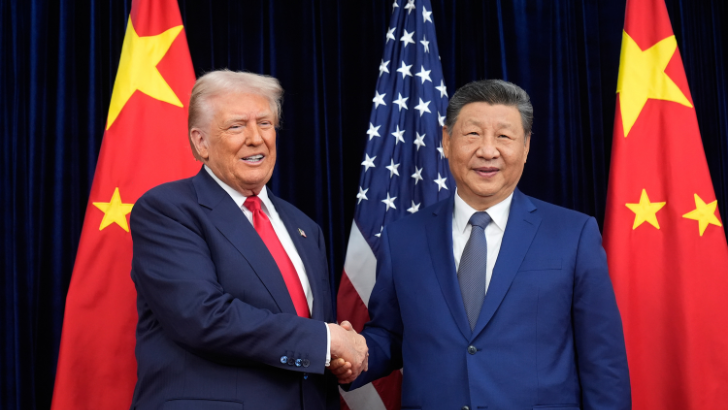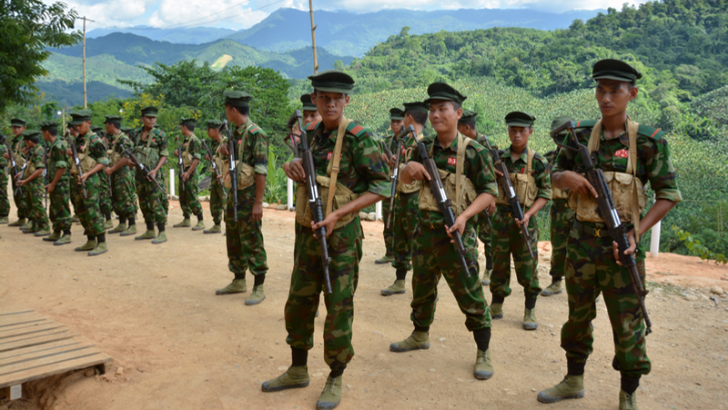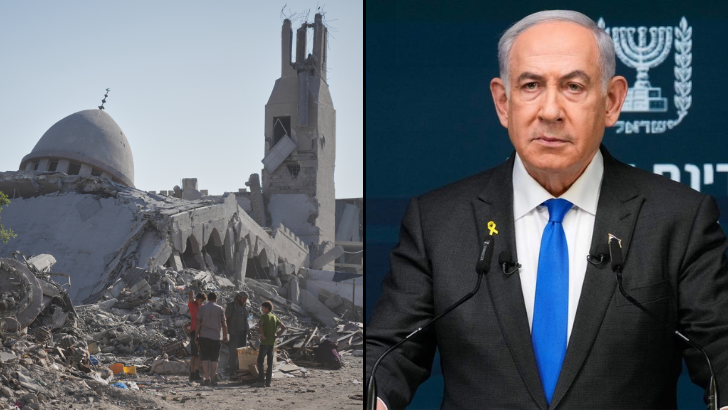Bolsonaro's political influence in Brazil could endure despite his conviction
Opinion polls have shown that Bolsonaro remains central to Brazil's polarized landscape. Even behind bars, he could determine who carries his coalition's flag into the 2026 election.
PTI
-
Bolsonaro has been sentenced to prison for over 27 years.
Sao Paulo, 13 Sept
Former Brazilian President Jair Bolsonaro
was not present in the room when a Supreme Court panel convicted and sentenced
him to 27 years and three months in prison on charges of attempting a coup.
With Bolsonaro under house arrest and in
poor health, his lawyer has said that the ex-leader was too sick to attend the
final hearings. But despite frailty and his conviction, Bolsonaro's political
influence will certainly endure.
Even after his sentencing, public opinion
is divided on whether he committed a crime and should go to prison, a debate
that exists even though experts agree the far-right politician will continue to
have a significant influence on the political landscape of the Latin American
giant.
“Maybe we'll see something relatively new
in Brazilian politics: a public figure who is under house arrest, who cannot
formally take part in politics because of a conviction and ineligibility, but
who still influences the course of politics,” said anthropologist Isabela
Kalil, coordinator of the Extreme Right Observatory, a research group based in
Minas Gerais state.
A divided society
Four days before his conviction, tens of thousands of Bolsonaro supporters took to the streets across Brazil on Independence Day. Among them was Luiz Niemeyer, a 62-year-old businessman in Rio de Janeiro, who sees the former president as a “hero” who has built an unstoppable political movement.
“Ideals are not killed, ideals are not
arrested," he said. "You can arrest Bolsonaro, you can kill
Bolsonaro, but these ideals will not die.”
Opinion polls have shown that Bolsonaro
remains central to Brazil's polarized landscape. Even behind bars, he could
determine who carries his coalition's flag into the 2026 election.
Observers say that to become a competitive
contender against President Luiz Inácio Lula da Silva, who is expected to run
for reelection, any opposition candidate must first secure the crucial
electoral base and explicit support of far-right leader Bolsonaro.
Recent polls show Lula regaining his
popularity, suggesting he will be a competitive candidate in the next election.
But a poll released 28 Aug by AtlasIntel
shows Lula in a statistical tie with Bolsonaro in a hypothetical election
scenario, if elections were to be held then and with the same 2022 candidates
on the ballot.
The country is also divided over
Bolsonaro's conviction. A Datafolha poll from August found that 48% of
Brazilians wanted to see Bolsonaro imprisoned, while 46% wanted him to remain
free. The survey, which has a margin of error of 2 percentage points, was
conducted in person with over 2,000 people across 130 municipalities.
“When people ask me if I think Bolsonaro is
weakened, my answer is that it depends on perspective,” Kalil, from the Extreme
Right Observatory group, said.
“If you consider that January 8 happened,
that all of this happened, and yet he still has a base and continues to shape
the direction of the far right and much of the right, I don't see that as a
sign of weakness,” she said referring to the 2023 episode when Bolsonaro
supporters stormed public buildings in Brasilia in what the
Prosecutor-General's Office saw as part of his plan to remain in power after
his defeat.
Still perceived as a leader
Silas Malafaia, an evangelical pastor and one of Bolsonaro's most influential allies, echoes the belief that the former president remains a key political figure despite his legal troubles.
“No one is going to take Bolsonaro's
prominence away from him, whether he's in prison or not," he said in late
August, before preaching in front of a packed church in Rio de Janeiro. “He's
the greatest right-wing leader in Latin America.”
In fact, as a way to show their support,
some Bolsonaro's allies are fighting to push an amnesty bill through Congress
that would allow the former leader to avoid time behind bars. Some are even
calling for a restoration of his political rights, as he's been barred from running
for office until 2030 as part of a separate process against him.
“We should push for his endgame to grant
Bolsonaro amnesty and make him eligible to run as our candidate,” Sen Ciro
Nogueira, a former chief of staff under Bolsonaro, told The Associated Press in
a phone interview. “Without him, we won't win the election. He is the main
leader, the guiding figure.”
But in practice, Brazilian right-wing
leaders have already started considering a Plan B.
Nogueira leads Progressistas, one of
Brazil's most powerful right-wing parties, and has named Sao Paulo Gov Tarcísio
de Freitas and Parana Gov Ratinho Junior as potential pro-Bolsonaro
presidential candidates, as well as Sen. Flávio Bolsonaro, the former
president's eldest son.
Both governors have joined street
demonstrations called by Bolsonaro, defending his innocence. But Bolsonaro's
sons, who remain central to his inner circle, do not necessarily trust them.
As the governor of Brazil's richest and
most populous state, de Freitas is a strong contender for the 2026 election.
The former Bolsonaro minister and military officer, is widely seen as the
right's favourite candidate.
Private messages released by the Supreme
Court in August showed Eduardo Bolsonaro, who lives in the US and has ties to
the MAGA movement, privately accusing de Freitas of failing to defend his
father in the Supreme Court while quietly preparing his own presidential run.
De Freitas has declined to comment on the
accusation, and while he has not admitted he would run for the presidency, he
said that if elected in 2026, he would immediately grant amnesty to Bolsonaro.
The governor attended the Independence Day
demonstration in Sao Paulo on Sunday. Mimicking the former president's former
speeches, de Freitas called out the justice who oversaw the coup case at the
Supreme Court. “Nobody can stand the tyranny of a justice like Moraes anymore,”
he said, referring to Alexandre de Moraes.
Following the verdict de Freitas said on X
that Bolsonaro and the other officers convicted with him were “victims of an
unfair sentence with disproportionate penalties.”
“Stay strong, President. We will remain by
your side!" he said.
Brazil may see Bolsonarism 2.0
Bolsonaro's conviction could mark a new
chapter in Brazilian politics.
Esther Solano, a sociologist at the Federal
University of Sao Paulo and who has tracked Bolsonaro voters and evangelicals
since 2017, calls it “Bolsonarism 2.0.”
Her surveys show supporters believe
Bolsonaro was crucial to launching a conservative crusade, but the movement is
now strong enough to outlive him. New figures are emerging, Solano notes,
including de Freitas, former first lady Michelle Bolsonaro, lawmaker Nikolas
Ferreira and other evangelical leaders.
"Bolsonarism is moving into a new
phase: consolidation, fortification and a new ecosystem of leaders who will
rise stronger from Bolsonaro's downfall,” she said.
Leave a Reply
Your email address will not be published. Required fields are marked *










.png)


.png)
.png)

.png)
.png)

.png)
